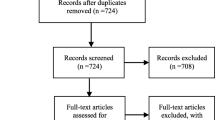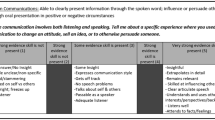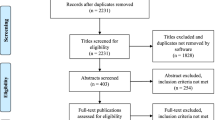Abstract
Objective
The authors assess the perspectives of psychiatry residents about the goals of receiving education in professionalism and ethics, how topics should be taught, and on what ethical principles the curriculum should be based.
Methods
A written survey was sent to psychiatry residents (N=249) at seven U.S. residency programs in Spring 2005. The survey was based on an instrument originally developed at the University of New Mexico, consisting of 149 questions in 10 content domains, with 6 questions regarding ethics experiences during training and 5 demographic questions.
Results
A total of 151 psychiatry residents (61%) returned usable responses to our survey. Residents reported receiving a moderate amount of ethics training during medical school (mean: 5.20; scale: 1: None to 9: Very Much) and some ethics training during residency (mean: 4.60). Residents endorsed moderate to moderately-strong agreement with all 11 goals of medical education in professionalism and ethics (means: 5.29 to 7.49; scale: 1: Strongly Disagree to 9: Strongly Agree). Respondents were more likely to endorse the value of clinically- and expert-oriented learning methods over web-based educational approaches.
Conclusion
U.S. psychiatry residents endorse a range of goals for education in professionalism and ethics. At the same time, they prefer that these topics be taught in clinically relevant ways and through expert instruction. The value of web-based approaches warrants further investigation.
Similar content being viewed by others
References
American Board of Internal Medicine Foundation, American College of Physicians, American Society of Internal Medicine, European Federation of Internal Medicine: Medical professionalism in the new millennium: a physician charter. Ann Intern Med 2002; 136:243–246
Accreditation Council of Graduate Medical Education: Outcome Project, General Competencies, 2007
Coverdale JH: The status of ethics education in Australasian psychiatry. Aust N Z J Psychiatry 1996; 30:813–818
Jacobson JA, Tolle SW, Stocking C, et al: Internal medicine residents’ preferences regarding medical ethics education. Acad Med 1989; 64:760–764
Olukoya AA: Attitudes of medical students to medical ethics in their curriculum. Med Educ 1983; 17:83–86
Roberts LW, Warner TD, Hammond KA, et al: Becoming a good doctor: perceived need for ethics training focused on practical and professional development topics. Acad Psychiatry 2005; 29:301–309
Shelp EE, Russell ML, Grose NP: Students’ attitudes to ethics in the medical school curriculum. J Med Ethics 1981; 7:70–73
Tiberius RG, Cleave-Hogg D: Changes in undergraduate attitudes toward medical ethics. Can Med Assoc J: 1984; 130: 724–727
Roberts LW, McCarty T, Lyketsos C, et al: What and how psychiatry residents at ten training programs wish to learn about ethics. Acad Psychiatry 1996; 20:131–143
Roberts LW, Green Hammond KA, Geppert CM, et al: The positive role of professionalism and ethics training in medical education: a comparison of medical student and resident perspectives. Acad Psychiatry 2004; 28:170–182
Barondess JA: Medicine and professionalism. Arch Intern Med 2003; 163:145–149
Culver CM, Clouser KD, Gert B, et al: Basic curricular goals in medical ethics. N Engl J Med 1985; 312:253–256
Epstein RM, Hundert EM: Defining and assessing professional competence. JAMA 2002; 287:226–235
Miles SH, Lane LW, Bickel J, et al: Medical ethics education: coming of age. Acad Med 1989; 64:705–714
Roberts L, McCarty T, Obenshain S: Comprehensive performance examination gives insights into the “hidden curriculum.” Acad Med 1999; 74:597–598
Singer PA, Robb A, Cohen R, et al: Performance-based assessment of clinical ethics using an objective structured clinical examination. Acad Med 1996; 71:495–498
Stobo JD, Blank LL: American Board of Internal Medicine’s Project Professionalism: staying ahead of the wave. Am J Med 1994; 97:1–3
Christakis DA, Feudtner C: Ethics in a short white coat: the ethical dilemmas that medical students confront. Acad Med 1993; 68:249–254
Diekema DS, Shugerman RP: An ethics curriculum for the pediatric residency program. confronting barriers to implementation. Arch Pediatr Adolesc Med 1997; 151:609–614
Hayward RS, Honer WG: Student-directed teaching of medical ethics at a Canadian medical school. J Med Educ 1985; 60:384–389
Lazarus CJ, Chauvin SW, Rodenhauser P, et al: The program for professional values and ethics in medical education. Teach Learn Med 2000; 12:208–211
Perkins HS, Geppert CM, Hazuda HP: Challenges in teaching ethics in medical schools. Am J Med Sci 2000; 319:273–278
Sulmasy DP, Geller G, Levine DM, et al: Medical house officers’ knowledge, attitudes, and confidence regarding medical ethics. Arch Intern Med 1990; 150:2509–2513
Roberts LW, Geppert CM, Warner TD, et al: Bioethics principles, informed consent, and ethical care for special populations: curricular needs expressed by men and women physicians-in-training. Psychosomatics 2005; 46:440–450
Venglar M, Theall M: Case-based ethics education in physical therapy. J Scholarship Teaching Learning 2007; 7:64–76
Bennett AJ, Arnold LM, Welge JA: Use of standardized patients during a psychiatry clerkship. Acad Psychiatry 2006; 30:185–190
Hafferty FW: Beyond curriculum reform: confronting medicine’s hidden curriculum. Acad Med 1998; 73:403–407
Haidet P, Stein HF: The role of the student—teacher relationship in the formation of physicians: the hidden curriculum as process. J Gen Intern Med 2006; 21(suppl 1):S16–S20
Author information
Authors and Affiliations
Corresponding author
Rights and permissions
About this article
Cite this article
Jain, S., Dunn, L.B., Warner, C.H. et al. Results of a Multisite Survey of U.S. Psychiatry Residents on Education in Professionalism and Ethics. Acad Psychiatry 35, 175–183 (2011). https://doi.org/10.1176/appi.ap.35.3.175
Received:
Revised:
Accepted:
Published:
Issue Date:
DOI: https://doi.org/10.1176/appi.ap.35.3.175




